Latest Stories
Latest News
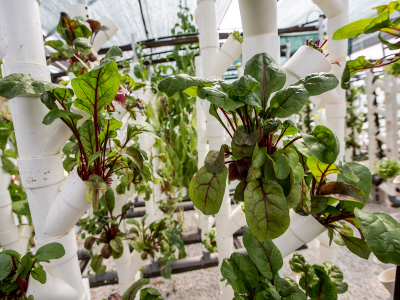
Closing the loop: building a zero-waste food system
28/03/2024
The International Day of Zero Waste reminds us of the need for action at all levels and collaboration among diverse actors. Working together, we can create a transformative shift towards a more resilient and sustainable food system that ensures a better future for generations to come. The BioDAF project of the Food and Agriculture Organization of the United Nations (FAO), for example, has set up a farm school for the production of black soldier fly larvae. The larvae feed on organic waste and thereby reduce food waste. The dried larvae are used as animal feed in agriculture, and the frass can be turned into organic fertilizer.

FAO boosts animal health training with accredited online courses
27/03/2024
The Food and Agriculture Organization of the United Nations (FAO) is taking a leap forward in bolstering animal health training globally. The FAO Virtual Learning Center (VLC) for the Europe and Central Asia region has secured accreditation for three of its online courses through the Veterinary Continuing Education in Europe (VetCEE) – an international non-profit association founded as a joint initiative of veterinary academia, specialists and the profession. These accredited courses include topics as diverse as biosecurity for ruminants, African swine fever preparedness, and an introduction to One Health.

2030 Agenda for Sustainable Development at centre of regional forum
25/03/2024
Realizing the Sustainable Development Goals (SDGs) and ensuring a sustainable future for all is central to the work of the Food and Agriculture Organization of the United Nations (FAO). Data released by FAO from 2023 showed that the world is off-track to meet most of the Sustainable Development Goal (SDG) targets linked to hunger, food security, and nutrition. Given the increasingly short deadline to meet the 2030 Agenda, FAO, in collaboration with UN partners, has contributed to the 2024 Regional Forum on Sustainable Development, an event that provided a venue for participants to exchange knowledge, best practices, and policy solutions to support the 2030 Agenda for Sustainable Development.
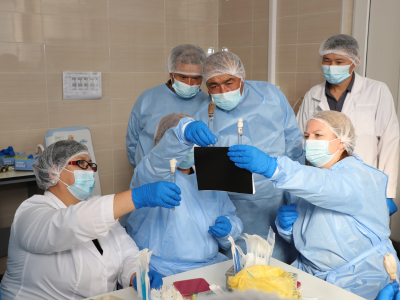
New programme addresses zoonotic diseases and strengthens animal health services in Kyrgyzstan
15/03/2024
Zoonotic diseases – diseases that can pass between animals and people – continue to have major impacts on human health and cause economic losses. To support the Kyrgyz Republic in controlling such diseases, the Food and Agriculture Organization of the United Nations (FAO), in partnership with the Government of the United States of America through the United States Agency for International Development (USAID), and the Ministry of Water Resources, Agriculture and Processing Industry of the Kyrgyz Republic launched the Global health security and pandemic preparedness programme. It should enhance the One Health approach in the country and support its ability to prevent, detect and respond to zoonotic and other public health threats.
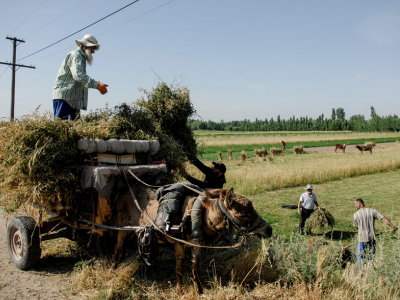
First national forum of cooperatives held in Dushanbe
14/03/2024
On March 12–13 the first National Forum of Cooperatives in Tajikistan was convened, organized by the Food and Agriculture Organization of the United Nations (FAO) with the support of the Ministry of Agriculture of Tajikistan. The forum provided a platform for participants who were representatives of government authorities of Tajikistan, FAO, cooperatives, development partners, scientific and expert circles of Tajikistan to share knowledge, debate current issues and consider potential future developments of national cooperatives.
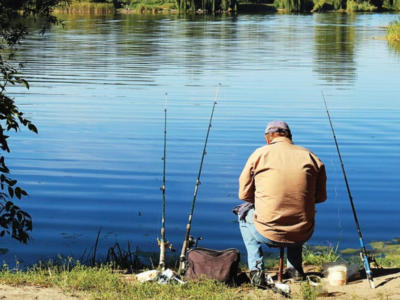
Slovenia becomes 38th member of the European Inland Fisheries and Aquaculture Advisory Commission
11/03/2024
Slovenia has become the latest country to join the European Inland Fisheries and Aquaculture Advisory Commission. Mateja Čalušić, Slovenia’s Minister for Agriculture, Forestry and Food, submitted a letter to QU Dongyu, the Director-General of the Food and Agriculture Organization of the United Nations (FAO), on 18 January 2024, expressing Slovenia’s wish to join EIFAAC.

Women at the forefront of agrifood systems transformation
08/03/2024
For International Women’s Day, the perspectives of three remarkable women, are in the spotlight: an entrepreneur and community organizer from rural Albania, a distinguished academic from Türkiye, and a forward-thinking policy-maker from Uzbekistan.

Women-led cooperatives foster resilience amidst adversity in Türkiye
06/03/2024
The Food and Agriculture Organization of the United Nations (FAO), which had been supporting the cooperative even before the earthquake, stepped in to help the collective get back on its feet. By providing machinery and equipment, FAO ensured that women-led cooperatives received the help they needed to rebuild and recover. Such initiatives align with FAO's commitment to invest in gender equality and women’s empowerment in agrifood systems. These go a long way in advancing progress and enhancing the resilience and food security of households and communities.

Tajikistan’s rural women and youth increase resiliency against gaps left by labour migration
04/03/2024
Approximately ten percent of the Tajikistan’s population is working abroad. This income-driven migration has serious socioeconomic impacts such as divorce, labour shortages in agriculture, legal and financial issues, and increased hardships for rural women’s livelihoods. A joint Food and Agriculture Organization of the United Nations (FAO), International Organization for Migration (IOM), UN Women and UNICEF project, “Empowerment of Abandoned Families for Improved Migration Outcomes in Khatlon”, tackled multiple issues faced by rural women and families made vulnerable by outmigration of family members.
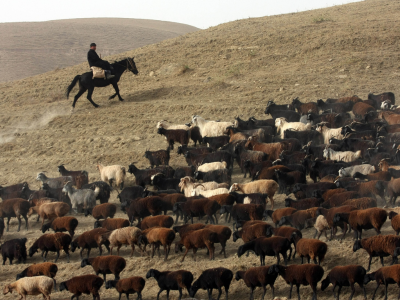
Animal health services in Uzbekistan bolstered by joint FAO-USAID project
04/03/2024
The Food and Agriculture Organization of the United Nations (FAO) in partnership with the United States Agency for International Development (USAID) and the Committee of Veterinary and Livestock Development of the Republic of Uzbekistan have launched a new project, implemented by the FAO Emergency Centre for Transboundary Animal Diseases (ECTAD), under USAID’s Global Health Security program. The project will support Uzbekistan’s ability to prevent, detect and respond to animal and public health threats. The inception workshop of the FAO ECTAD project brought together representatives in the agriculture, veterinary, and livestock sectors from the Government of Uzbekistan, international organizations, national research institutes, and civil society.


